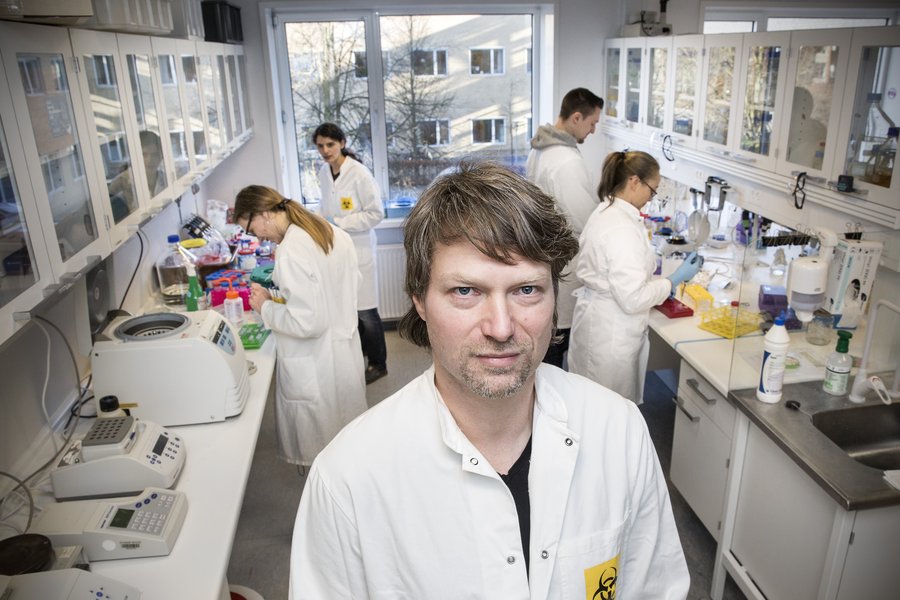AU researcher receives award for pioneering research on allergy treatment
Associate Professor Edzard Spillner and his research group at the Department of Engineering, Aarhus University, are the first in the world to unravel a laboratory method that can “turn off” allergies.

Every year, the Astma-Allergi Danmark organisation awards the Grethe Stampe Award personally to a researcher, in recognition of a special contribution to allergy research. In 2018, Associate Professor Edzard Spillner received the prestigious award for his work to describe mechanisms of antibodies that can be exploited to treat allergies.
Together with his research group and long year collaborators from MGB, Aarhus University, and Germany, Edzard Spillner has found a new antibody mechanism that could prevent allergic reactions in a large number of patient groups. In a way, the antibody can “turn off” an allergy, and this is without doubt a scientific breakthrough that could pave the way for effective new allergy treatments.
ALSO READ: Aarhus University opens Denmark's first Centre for Digital Twins
"When you work in basic research, there’s often a long way from bench to bedside. Therefore, we’re very pleased about this award and the attention it brings, because it’s important to us that health-policy organisations can see the potential in our results," says the Associate Professor on behalf of the researchers.
And there is also good reason to be optimistic. The research group discovered the effects of the antibody in early 2018, and it is nothing short of ground-breaking: A scientific breakthrough, which can pave the way for a highly effective allergy drug that will help millions of people worldwide.
Actually, the research team was just hoping to find a way to improve the existing options for dealing with the rapidly growing number of allergy sufferers.
ALSO READ: Using machine learning, we're looking for new antibiotics in national parks
However, instead they discovered that the completely new properties and mechanisms of action in a specific antibody make it possible to block the immune effect behind allergic reactions.
The antibody turned out to interact in a complex biological process in the body, by which it prevents the allergy molecule (IgE) from attaching to other cells and removes already bound IgE.
This means that the researchers can now not only relieve the allergy symptoms - they could actually prevent them from arising.
“We can define the structure of the antibody binding to its target very accurately, and thus describe how it inhibits the interaction between IgE and the specific receptors in the relevant cells of the body that are responsible for producing histamine in the context of an allergic reaction. It’s a scientific breakthrough with a great potential for further research in allergy medicine," says Associate Professor Edzard Spillner.
ALSO READ: AU opens experimental hub for engineering research
The discovery of the mode of action of the antibody is good news for approximately one-third of the population in the West who are currently living with allergies.
Their scientific results have been published in the prestigious journal, Nature Communications.
READ MORE: New lab discovery can put an end to allergic reactions
Contact
Associate Professor Edzard Spillner
Mail: e.spillner@eng.au.dk
Phone: +45 21186396
